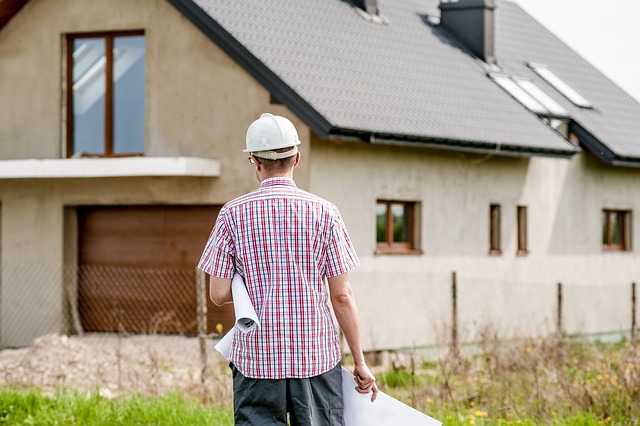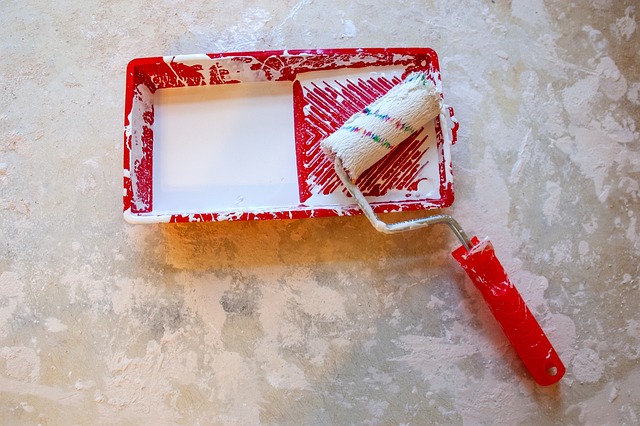embarking on a home renovation project requires careful planning and strategic management. This article navigates through the essential steps needed to ensure your home repair and maintenance endeavors yield successful outcomes. We’ll explore key strategies in home renovation planning, delve into the pivotal aspects of project management, and provide guidance on budgeting, scheduling, and coordination to maintain project momentum. By integrating these practices, you can transform your living space with efficiency and grace, turning your vision into a reality.
- Strategic Planning for Effective Home Repair and Maintenance
- Essential Steps in Project Management for Home Renovation Success
- Budgeting, Scheduling, and Coordination: Keeping Your Home Renovation on Track
Strategic Planning for Effective Home Repair and Maintenance

When embarking on home repair and maintenance, strategic planning is paramount to ensure projects are completed efficiently and effectively. Homeowners should begin by assessing the condition of their property, prioritizing repairs based on urgency and long-term impact. A comprehensive plan includes a detailed inventory of systems and structures, noting age, current state, and expected lifespan. This foresight allows for proactive rather than reactive maintenance, which can prevent more costly repairs down the line. Budgeting is another critical component; setting aside funds specifically for home repair and maintenance ensures financial readiness for unexpected issues. Additionally, aligning timelines with seasonal weather patterns can optimize project execution, as certain tasks are best performed under specific conditions. For instance, roof repairs are ideal during warmer months when the material is pliable, while landscaping might be scheduled during cooler seasons to protect plant life.
To enhance the longevity and functionality of your home, a maintenance schedule should be established, outlining recurring checks and inspections. This schedule can include seasonal tasks like cleaning gutters, servicing HVAC systems, and inspecting plumbing for leaks. Regular upkeep not only preserves the value of the property but also contributes to a safer and more comfortable living environment. Engaging with professionals for expert advice tailored to your home’s specific needs further supports effective home repair and maintenance. Their insights can guide you in selecting appropriate materials and techniques, ensuring that each project is completed with precision and care. By integrating these planning strategies, homeowners can maintain a well-maintained residence that stands the test of time.
Essential Steps in Project Management for Home Renovation Success

Embarking on a home renovation project requires meticulous planning and effective management to achieve successful outcomes. A well-planned renovation can enhance both the functionality and aesthetic appeal of your living space, but it necessitates careful consideration of various factors. Home Repair and Maintenance play a pivotal role in this process, ensuring that the renovation not only meets your vision but also adheres to safety standards and maintains the structural integrity of your home.
The initial phase involves defining the scope of work, which includes setting clear objectives for the renovation. This stage should encompass a detailed assessment of the current state of your home, identifying areas that require repair or improvement. Engage with professionals such as architects or contractors to draft a comprehensive plan that aligns with your budget and timeline. Once the plan is in place, securing the necessary permits is crucial before any construction begins. Throughout the project, maintain open communication with your team to address any issues promptly, which is essential for staying on schedule and within budget. Regular inspections during the renovation are vital to ensure that all work complies with building codes and regulations. After completion, a thorough walkthrough with your contractor can pinpoint any items that may need Home Repair and Maintenance attention post-renovation. By adhering to these steps and managing your project diligently, you can transform your home into a space that not only meets your needs but also stands the test of time.
Budgeting, Scheduling, and Coordination: Keeping Your Home Renovation on Track

When undertaking a home renovation project, meticulous planning and management are key to its success. A well-defined budget is the cornerstone of any renovation endeavor. It dictates the scope of work and the materials used, ensuring that resources are allocated efficiently and financial strain is minimized. Homeowners should start by assessing their overall home repair and maintenance needs, prioritizing them based on urgency and importance, and then estimating costs for each component of the project. This initial budget should account for unexpected expenses that often arise during the renovation process. It’s prudent to include a contingency fund, typically around 10-20% of the total budget, to cover unforeseen events, which helps in maintaining financial stability throughout the project.
Scheduling follows closely behind budgeting as a critical aspect of home renovation planning and management. A detailed timeline should be established, outlining each phase of the renovation, from demolition to completion. This schedule serves as a roadmap for all parties involved, including contractors, subcontractors, and suppliers. Effective coordination is essential to adhere to this timeline. Communication between all stakeholders must be clear and consistent to ensure that each task is completed in the correct sequence. Coordination also involves managing the logistics of material deliveries and the comings and goings of workers, which can significantly impact the overall progress of the renovation. By maintaining a flexible yet structured approach, homeowners can navigate the complexities of home repair and maintenance, keeping their renovation projects on track and within budget.






